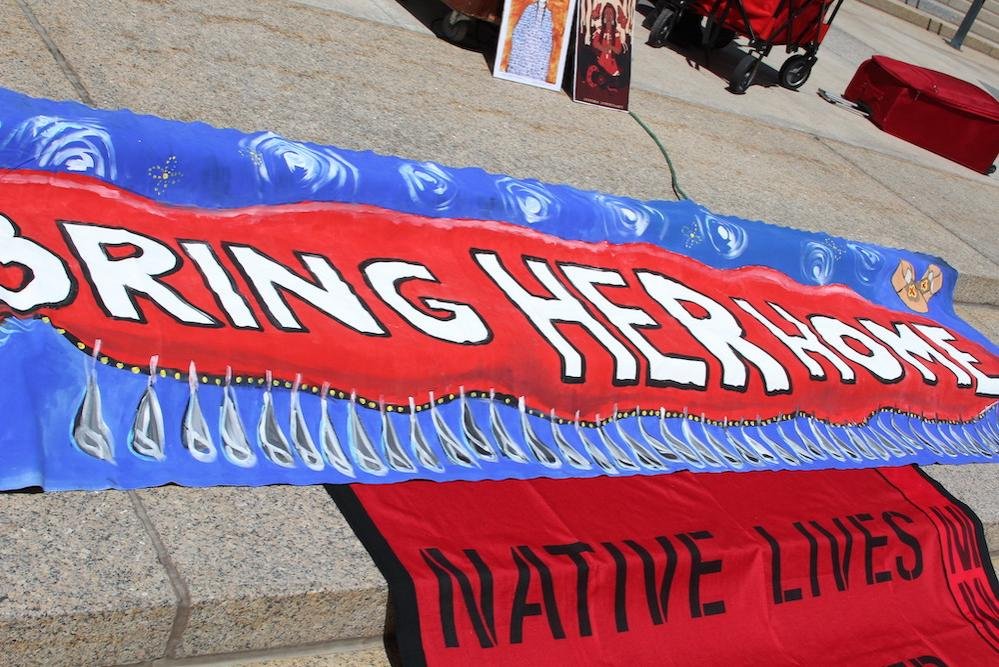arizona
Major Legislation Poses Threat to MMIP Initiatives

A renewed focus on the high rates of missing and murdered Indigenous people is emerging across the United States. This shift follows decades of inconsistent police interest and public engagement.
Recent events, particularly around the murder case of Susan “Suzy” Poupart, exemplify this change. Poupart was killed 35 years ago near the Lac du Flambeau Band of Lake Superior Chippewa lands in Wisconsin. Now, various tribal, federal, and county agencies have united to seek justice.
In May, the Lac du Flambeau tribal council announced a $25,000 reward for information leading to the arrest of those responsible for her 1990 murder. They also implemented a similar reward for Melissa Beson, who disappeared in March of this year.
After years of financial hurdles, the Vilas County sheriff’s department gained support from the Bureau of Indian Affairs Missing and Murdered Unit to fund DNA testing related to Poupart’s remains. This initiative, dubbed Operation Spirit Return, aims to resolve cold cases within Indian Country.
“The winds of change are finally coming,” stated Jared Poupart, Suzy’s son and a member of the tribal council. “Our community is increasingly holding leaders accountable for their actions.”
However, these gains are threatened by recent federal cuts to diversity, equity, and inclusion initiatives under the Trump administration, which have limited funding for vital public service organizations. Since January, the Department of Justice has rescinded 373 safety and justice grants affecting over 550 organizations nationwide.
Stacey June Ettawageshik, head of Uniting Three Fires Against Violence, emphasized the importance of maintaining financial support for Indigenous communities. “Having that suddenly taken away would be devastating for our communities,” she remarked.
Despite a long-standing acknowledgment of violence against Indigenous individuals, the issue remains largely ignored by mainstream society. Recent data shows staggering rates: 84% of Indigenous women experience violence in their lifetime, with homicide being a leading cause of death among young Indigenous women.
According to the FBI, over 10,600 Indigenous individuals were reported missing in the U.S. in 2023 alone. Yet, comprehensive national databases on missing Native Americans are still lacking.
The case of Suzy Poupart highlights these gaps. Last seen at a party in May 1990, her remains were discovered in the Chequamegon-Nicolet National Forest months later. Despite evidence pointing to three suspects, no charges have been filed.
Jared Poupart and his sister Alexandria have been vocal advocates for justice, raising funds for DNA testing and constantly seeking answers about their mother’s fate. “They took away our whole life with her,” Jared said reflectively.
Amid these challenges, the Trump administration has made substantial cuts to grants that facilitate research and data collection crucial for tackling these issues. These reductions impact critical programs addressing domestic violence and other crimes affecting Indigenous populations.
Recent federal reports advocate for structural reform to address systemic inequities contributing to violence. The 2023 report from the Not Invisible Act Commission emphasized the need for the federal government to address long-standing failures in law enforcement.
The devastating state budget cuts, proposed by the outgoing administration, further threaten Indigenous communities reliant on federal support. For example, the proposed Bureau of Indian Affairs cuts would severely hinder law enforcement operations and public safety initiatives.
Despite this bleak outlook, certain states and tribal entities are mobilizing, forming task forces dedicated to missing and murdered Indigenous persons. Communities organized significant rallies in May, reaffirming their commitment to raising awareness about this critical issue.
The “Say Her Name” rally in Madison, Wisconsin, highlighted calls for increased funding and resources, as many task force initiatives remain underfunded. “We lack resources, including just simple databases,” stated Justine Rufus, chair of the state task force.
The fight to bring attention to this humanitarian issue continues, with advocates insisting that support for victims and their families must remain a priority.

















